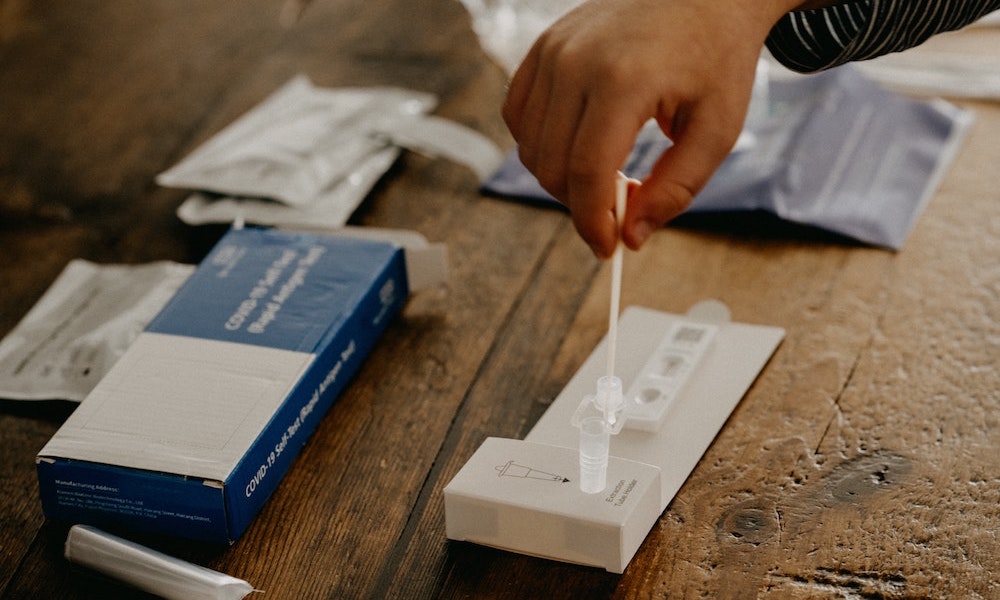Respiratory Virus Guidelines
 The Foothill-De Anza Community College District is following current guidance from
Santa Clara County and California health authorities, which is summarized on this webpage.
The Foothill-De Anza Community College District is following current guidance from
Santa Clara County and California health authorities, which is summarized on this webpage.
Click each red tab below to learn what you need to do, if you have
- a respiratory virus such as COVID-19, influenza (flu) or respiratory syncytial virus (RSV)
- a positive test result for a respiratory virus but no symptoms
- or close contact with someone who has a respiratory virus
The information on this webpage has been updated to align with new recommendations issued Sept. 17, 2024 by the Santa Clara County Department of Public Health. These recommendations cover all respiratory viruses including COVID-19, influenza (flu) or respiratory syncytial virus (RSV).
Reporting COVID-19
- Employees who test positive for COVID-19 are required to notify the district by completing the online employee self-reporting form.
- Students who test positive for COVID-19 are encouraged, but not required, to submit the student self-reporting form. Your report will help us keep track of exposures and may reduce the risk of further spreading.
Respiratory Virus With Symptoms
If you have a respiratory virus and have symptoms:
- Stay home and avoid others, including people you live with if they're not sick
- You can resume normal activities when
- You have been fever-free for 24 hours without using fever-reducing medicine,
and - Your other symptoms are improving
- When you resume normal activities, you should take these precautions for the next 5 days:
- Wear a mask that covers your nose and mouth when you're around other people indoors
- Get tested for respiratory viruses to find out if you are still infected
- Take steps to ensure that there is good air circulation around you
- Follow good hygiene – wash your hands frequently, cover your mouth and nose when coughing or sneezing
- Maintain physical distance from other people
- If you develop a fever or feel worse after you resume activities, repeat Steps 1-3 above.
Positive Test But No Symptoms
If you have a positive test result for respiratory virus, but never develop symptoms:
- You may still be contagious
- Take these precautions for 5 days:
- Wear a mask that covers your nose and mouth when you're around other people indoors
- Get tested for respiratory viruses to find out if you are still infected
- Take steps to ensure that there is good air circulation around you
- Follow good hygiene – wash your hands frequently, cover your mouth and nose when coughing or sneezing
- Maintain physical distance from other people
- If you develop a fever or other symptoms, follow the recommendations listed on this page for "Respiratory Virus With Symptoms"
Close Contact With Infected Person
If you learn that you've had close contact with someone who has a respiratory virus:
- If you're in a higher-risk group, you should get tested for respiratory viruses within 5 days after exposure
- If you test positive, follow the recommendations on this page for either "Respiratory Virus With Symptoms" or "Positive Test But No Symptons" – depending on your circumstance.
If you are around people who are at higher-risk for severe illness
- Consider getting tested for respiratory viruses
- Wear a mask indoors for 5 days after exposure
- If you test positive, follow the recommendations on this page for either "Respiratory Virus With Symptoms" or "Positive Test But No Symptons" – depending on your circumstance.

